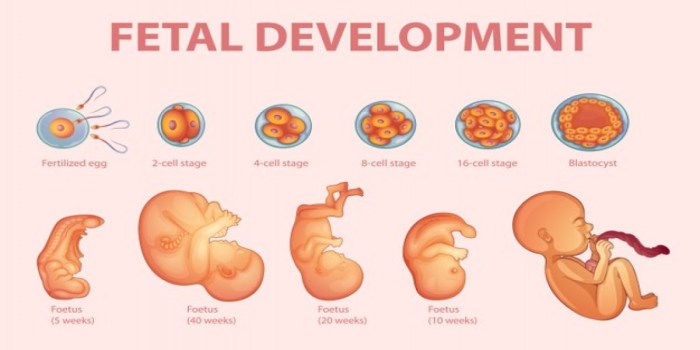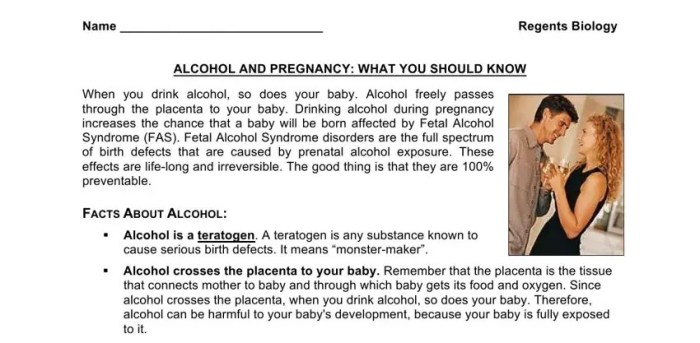Development of a human fetus lab answers pdf – Delve into the intricate journey of human fetal development with our comprehensive lab answers PDF, meticulously crafted to provide an in-depth understanding of this fascinating process. From conception to birth, we unravel the developmental stages, unraveling the physical, physiological, and cognitive transformations that shape a new life.
Our exploration encompasses the factors influencing fetal development, including environmental and genetic influences, and the impact of lifestyle choices. We delve into the techniques used to monitor fetal well-being, highlighting both non-invasive and invasive methods, their advantages, and limitations.
Developmental Stages of a Human Fetus
Human fetal development is a complex and fascinating process that begins at conception and continues until birth. During this period, the fetus undergoes significant physical, physiological, and cognitive changes as it develops from a single-celled zygote into a fully formed newborn.
Embryonic Stage (Weeks 1-8)
- Week 1:Fertilization occurs, and the zygote begins to divide.
- Weeks 2-3:The zygote implants in the uterine lining and forms the embryo.
- Weeks 4-8:Major organ systems begin to develop, including the heart, brain, and limbs.
Fetal Stage (Weeks 9-40)
- Weeks 9-12:The fetus continues to grow and develop, and its external features become more defined.
- Weeks 13-27:The fetus becomes more active and begins to move around in the uterus.
- Weeks 28-40:The fetus continues to mature, and its lungs and other organs prepare for birth.
Factors Influencing Fetal Development

Fetal development is influenced by a variety of factors, including both environmental and genetic factors.
Environmental Factors
- Nutrition:Adequate nutrition is essential for fetal growth and development.
- Maternal health:Maternal health conditions, such as diabetes and hypertension, can impact fetal development.
- Exposure to toxins:Exposure to toxins, such as alcohol, tobacco, and drugs, can harm the developing fetus.
Genetic Factors
- Chromosomal abnormalities:Chromosomal abnormalities, such as Down syndrome, can cause birth defects and developmental problems.
- Inherited traits:Inherited traits, such as eye color and height, are passed down from parents to children.
Lifestyle Choices
- Smoking:Smoking during pregnancy can increase the risk of premature birth and low birth weight.
- Alcohol consumption:Alcohol consumption during pregnancy can cause fetal alcohol syndrome.
Techniques for Monitoring Fetal Development

There are a variety of techniques that can be used to monitor fetal development.
Non-Invasive Methods
- Ultrasound:Ultrasound is a safe and painless imaging technique that can be used to visualize the fetus and assess its growth and development.
- Prenatal screening tests:Prenatal screening tests, such as blood tests and genetic screening, can help identify potential health problems in the fetus.
Invasive Methods
- Amniocentesis:Amniocentesis is a procedure in which a sample of amniotic fluid is taken to test for chromosomal abnormalities and other genetic disorders.
- Chorionic villus sampling:Chorionic villus sampling is a procedure in which a sample of chorionic villi is taken to test for chromosomal abnormalities and other genetic disorders.
Common Fetal Abnormalities: Development Of A Human Fetus Lab Answers Pdf

Fetal abnormalities are relatively common, and they can range from minor to severe.
Chromosomal Disorders
- Down syndrome:Down syndrome is a chromosomal disorder that causes intellectual disability and physical abnormalities.
- Trisomy 18:Trisomy 18 is a chromosomal disorder that causes severe birth defects and intellectual disability.
Birth Defects
- Neural tube defects:Neural tube defects are birth defects that affect the brain and spinal cord.
- Heart defects:Heart defects are birth defects that affect the structure and function of the heart.
Genetic Syndromes
- Cystic fibrosis:Cystic fibrosis is a genetic syndrome that affects the lungs, pancreas, and other organs.
- Sickle cell anemia:Sickle cell anemia is a genetic syndrome that affects the blood cells.
Ethical Considerations in Fetal Development
Fetal development raises a number of ethical considerations, including:
Prenatal Testing and Genetic Engineering
- Prenatal testing:Prenatal testing can be used to identify potential health problems in the fetus, but it also raises concerns about the potential for discrimination and selective abortion.
- Genetic engineering:Genetic engineering has the potential to cure or prevent genetic diseases, but it also raises concerns about the potential for unintended consequences.
Abortion and Fetal Rights, Development of a human fetus lab answers pdf
- Abortion:Abortion is a controversial issue that raises questions about the moral status of the fetus.
- Fetal rights:Some people believe that fetuses have rights, such as the right to life, while others believe that fetuses do not have the same rights as born children.
Informed Consent
- Informed consent:Informed consent is essential for all medical procedures, including prenatal testing and genetic engineering.
- Decision-making:Pregnant women have the right to make decisions about their own health and the health of their fetuses.
Future Directions in Fetal Development Research
Fetal development research is a rapidly growing field, and there are a number of promising new directions for research.
Personalized Medicine
- Personalized medicine:Personalized medicine is a new approach to healthcare that takes into account individual genetic and environmental factors.
- Fetal medicine:Fetal medicine is a specialized field of medicine that focuses on the health of fetuses.
Stem Cell Therapies
- Stem cell therapies:Stem cell therapies have the potential to treat a wide range of diseases, including birth defects and genetic disorders.
- Fetal stem cells:Fetal stem cells are a type of stem cell that has the potential to develop into any type of cell in the body.
Ethical Implications
- Ethical implications:Future advancements in fetal development research raise a number of ethical implications that need to be carefully considered.
- Public dialogue:It is important to engage the public in a dialogue about the ethical implications of fetal development research.
Popular Questions
What are the key milestones in fetal development?
Key milestones include the formation of major organs, the development of limbs and facial features, and the onset of fetal movement.
How can environmental factors impact fetal development?
Environmental factors such as maternal nutrition, exposure to toxins, and maternal health can influence fetal growth and development.
What are the ethical considerations in fetal development?
Ethical considerations include the implications of prenatal testing, the debates surrounding abortion and fetal rights, and the importance of informed consent.